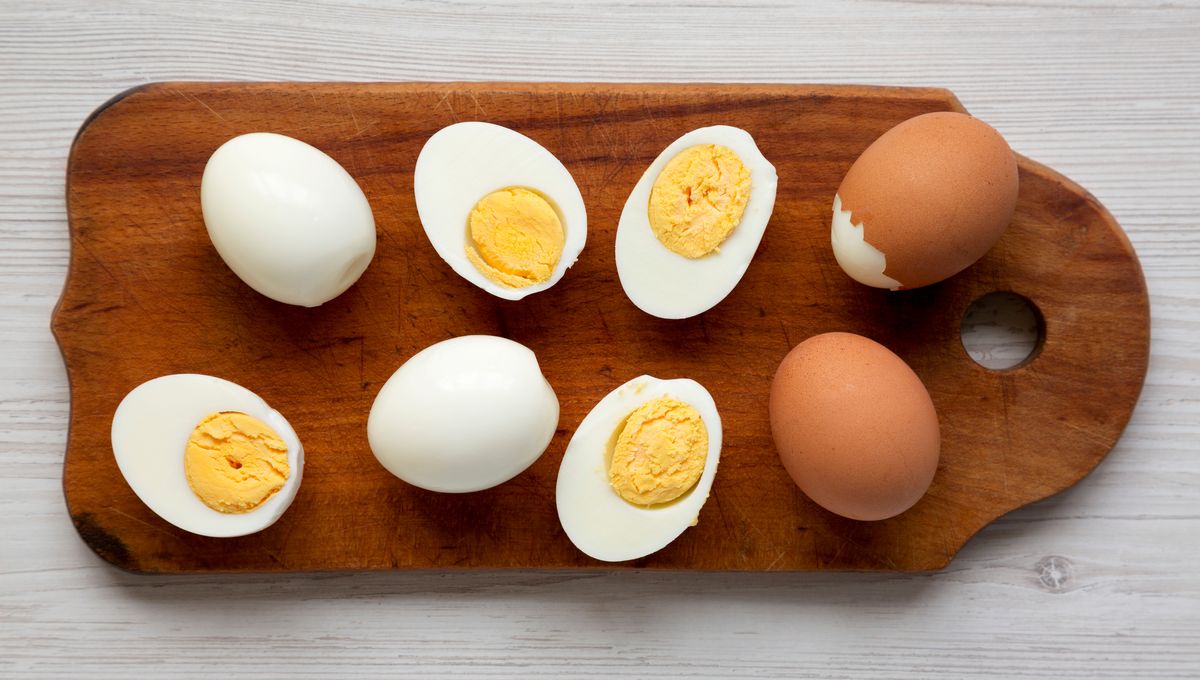
Heating is usually a way to soften things. Solids turn to liquids, liquids to gas – and when the process doesn’t go all the way, extra heat can lead to a softer solid or a more runny liquid. So why are eggs, normally liquid inside, an exception, turning hard when cooked appropriately? The answer turns out to be the same reason they’re such a big part of many people’s diet.
ADVERTISEMENT GO AD FREE
Eggs may have been part of our ancestors’ diet, being a favorite food for many omnivores. As we noticed that putting foods close – but not too close – to fire could make more nutrients available, eggs might have been one of the first things we cooked.
Externally laid eggs are packed with proteins, fat, and other nutrients to allow the embryo to grow and develop. It’s an approach so successful that most of the complex life forms on Earth use it, and have done for millions of years. Nevertheless, there are drawbacks to this form of reproduction, which is why mammals (monotremes aside) and some fish and reptiles have opted for the live birth path.
A key problem is that all those nutrients are also beneficial to lots of other animals, so they will eat the eggs if they can. Parents either need to hide the eggs very well, or guard them with their lives. In some cases, such as cane toads, even members of the same species consider the eggs a tasty meal.
Humans, however, are probably the only animals that have worked out that cooking makes their nutrients more available. The cooking process initially causes the egg white, or albumen, to harden. Although the albumen is predominantly water, it also contains a lot of proteins.
Proteins in turn are composed of long chains of amino acids, with genes ordering the sequence in which those amino acids are placed. Egg whites are runny partly because they contain so much water, but also because the amino acids are only bonded weakly to each other. Not all proteins have these weak bonds. Keratin, the protein in your hair and fingernails, is much tougher, but that strength comes with insolubility in water, so evolution chose more suitable proteins for eggs.
Heat breaks bonds between molecules, usually helping to make things soft. However, when it comes to proteins, the effect is to break the weak bonds between the amino acids, known as denaturing, causing them to unfold. If the amino acids remained disconnected, then the albumen would become even softer (ie runnier) than before – but instead, they form new, stronger bonds, assisted by the extra energy that allows them to move around to find the strongest match.
ADVERTISEMENT GO AD FREE
The water surrounding the new proteins gets forced out, turning the albumen hard – at least relative to its pre-cooking state. Using too much heat produces stronger bonds between the amino acids, making the egg too rubbery for human preference.
Egg yolks need lower temperatures to denature, which needs to be applied for longer, which is why the choice of cooking time can give you a runny, soft-boiled, or hard-boiled yolk, each with a solid white.
Eggs can be denatured in other ways, for example by whisking them or adding various household chemicals. When the process provides opportunities for new bonds to form, the result is also something harder, although not necessarily the same as from applying heat.
Source Link: Most Things Soften When Heated, So Why Do Eggs Go Hard?